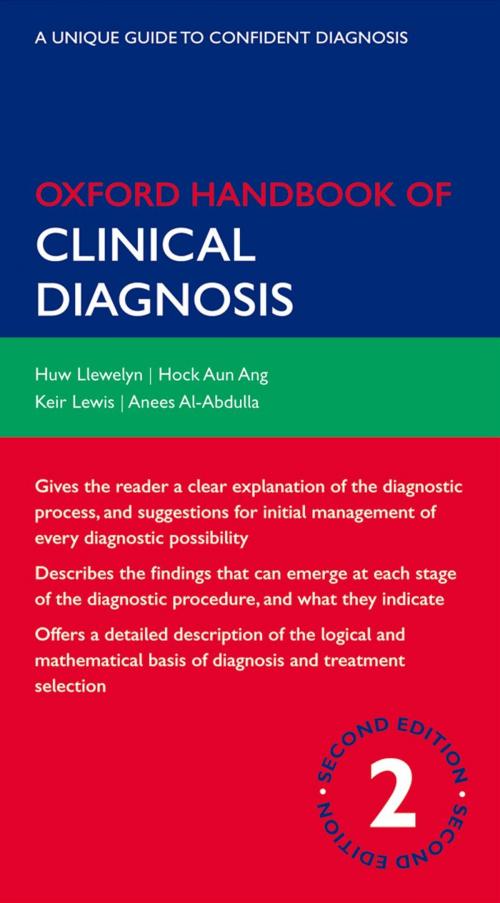Oxford Handbook of Clinical Diagnosis
Nonfiction, Health & Well Being, Medical, Reference, Practice Management & Reimbursement, Specialties, Internal Medicine, General| Author: | Huw Llewelyn, Hock Aun Ang, Keir E Lewis, Anees Al-Abdullah | ISBN: | 9780199232963 |
| Publisher: | OUP Oxford | Publication: | February 26, 2009 |
| Imprint: | OUP Oxford | Language: | English |
| Author: | Huw Llewelyn, Hock Aun Ang, Keir E Lewis, Anees Al-Abdullah |
| ISBN: | 9780199232963 |
| Publisher: | OUP Oxford |
| Publication: | February 26, 2009 |
| Imprint: | OUP Oxford |
| Language: | English |
The Oxford Handbook of Clinical Diagnosis is the first and only book so far to describe the differential diagnostic thought process so that it can be learnt logically and systematically. It also shows how to justify subjective diagnostic impressions clearly and logically in an evidence-based way. It provides the differential diagnosis of each symptom, physical sign and initial test result. The book uses pattern recognition tables which enable the reader to scan the page to see which diagnostic application would apply best to a patients findingsor case history. The book is aimed at medical students and others who wish to improve their diagnostic skills. It describes how to justify diagnoses and management decisions verbally or in writing and clarifies what evidence is needed to do so from research, and its statistical features. It provides senior doctors with a framework and examples to help teach trainees and students to approach diagnostic problems in a logical way and to justify their opinions. It provides all doctors with practical help when dealing with problems outside their immediate field of expertise, especially general practitioners and those faced with unforeseen situations.
The Oxford Handbook of Clinical Diagnosis is the first and only book so far to describe the differential diagnostic thought process so that it can be learnt logically and systematically. It also shows how to justify subjective diagnostic impressions clearly and logically in an evidence-based way. It provides the differential diagnosis of each symptom, physical sign and initial test result. The book uses pattern recognition tables which enable the reader to scan the page to see which diagnostic application would apply best to a patients findingsor case history. The book is aimed at medical students and others who wish to improve their diagnostic skills. It describes how to justify diagnoses and management decisions verbally or in writing and clarifies what evidence is needed to do so from research, and its statistical features. It provides senior doctors with a framework and examples to help teach trainees and students to approach diagnostic problems in a logical way and to justify their opinions. It provides all doctors with practical help when dealing with problems outside their immediate field of expertise, especially general practitioners and those faced with unforeseen situations.















